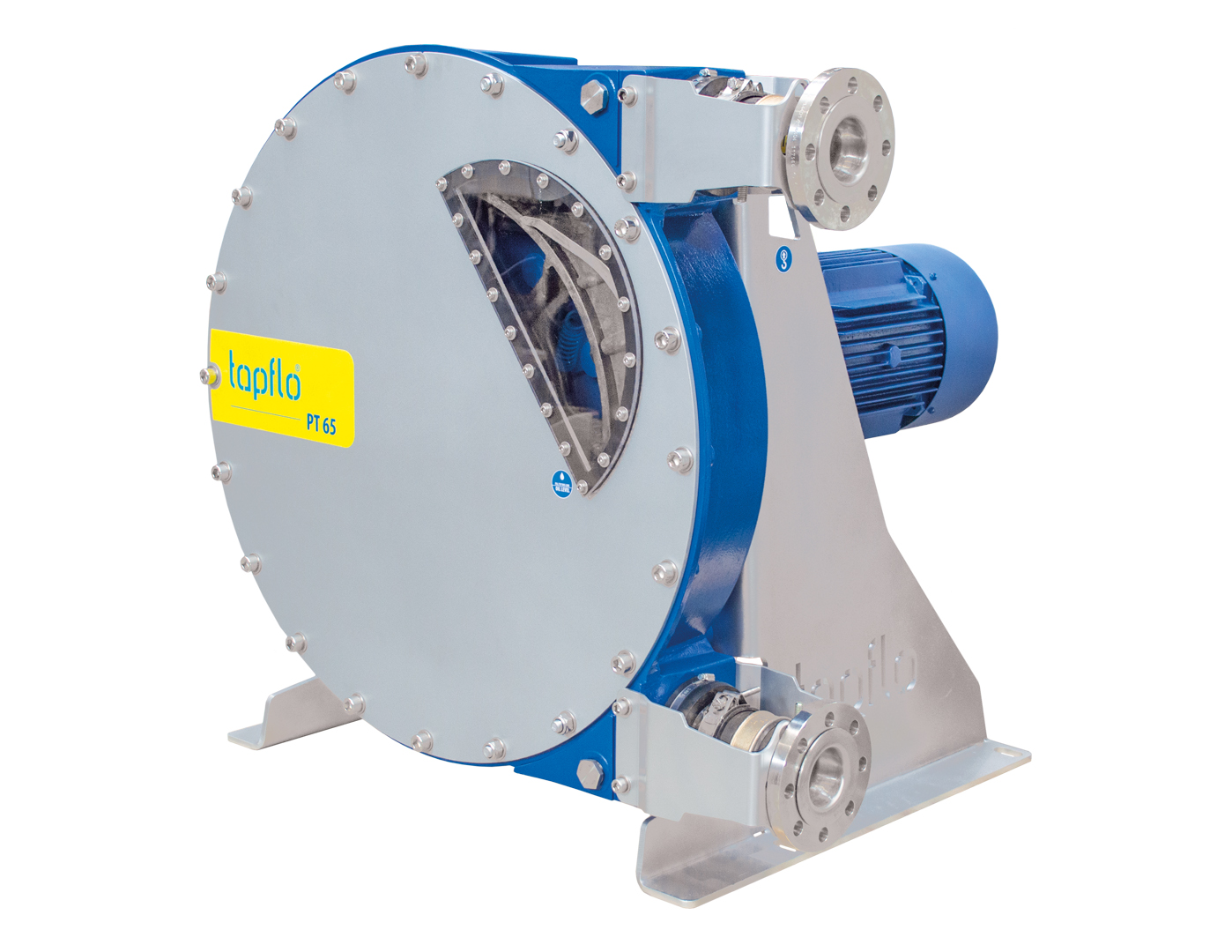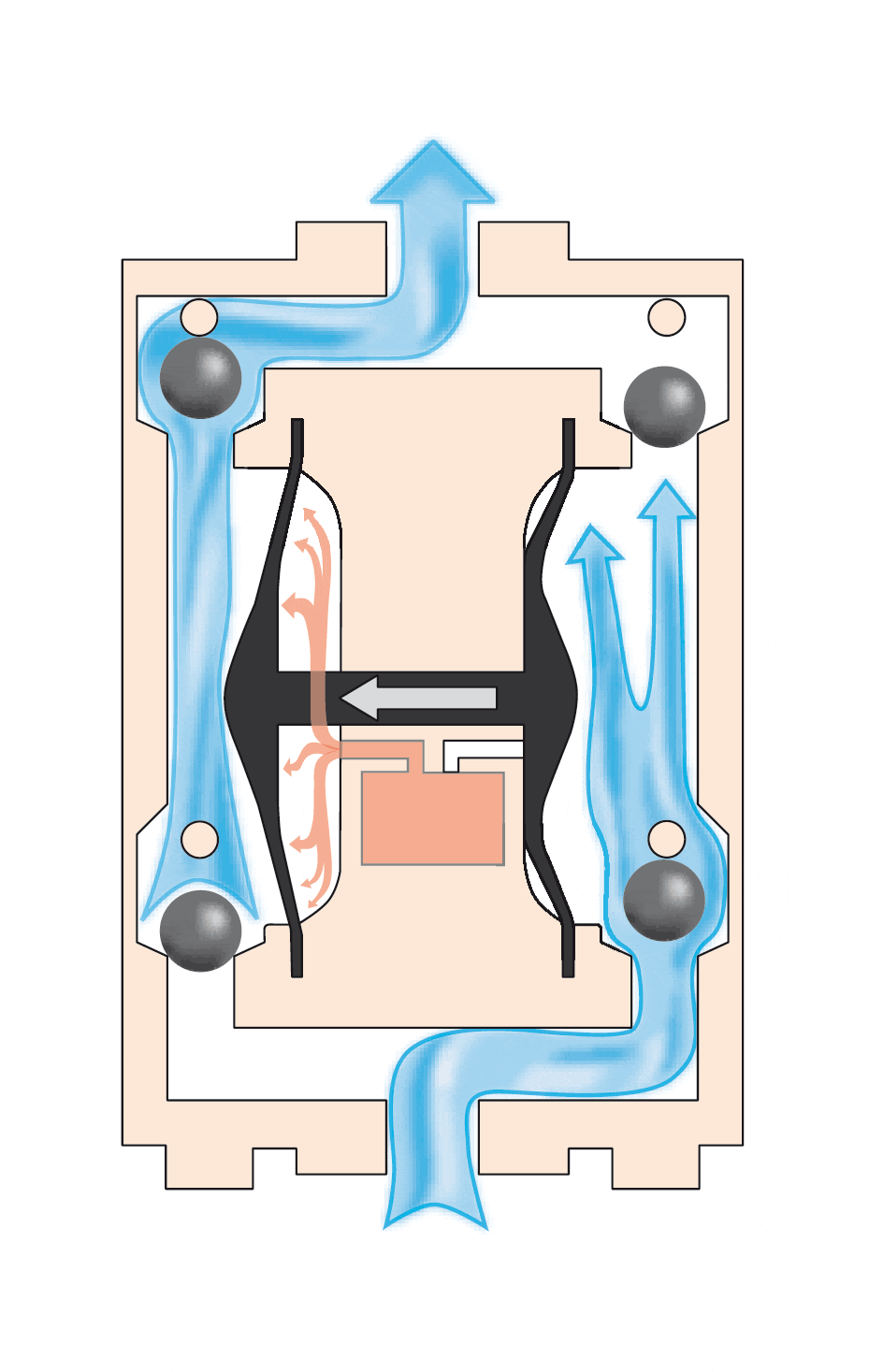A positive displacement pump, also known as a displacement pump or rotary pump, operates on a simple principle. It initially draws in a fixed amount of liquid and then forces it towards an outlet in a subsequent cycle. This action displaces the liquid, giving the pump its name.
When this type of pump operates at a constant speed, it consistently moves the same volume of liquid in and out, making it highly accurate for industrial applications.
Different types of positive displacement pumps
There are many different types of positive displacement pumps that employ various working principles. The fundamental principle of creating a "positive displacement" of the liquid remains the same, but, as you can read below, this displacement of liquid can be achieved in several different ways.
Reciprocating pump
Perhaps the simplest type of pump available on the market, these pumps utilize a reciprocating motion to capture and move liquid. One example is a piston pump.
Peristaltic pump
Also known as a hose pump, has an electric motor connected to a shaft equipped with rollers or shoes. When the pump starts and rotates, the roller/shoe compresses a hose, creating a vacuum that draws in the liquid. The liquid is then pushed towards the outlet as the next roller or shoe passes over the hose. A hose pump is often used to pump viscous and abrasive fluids, while smaller variants are popular for dosing and sampling purposes.

Rotary pump
These pumps utilize a rotating element (such as a gear, lobe, or vane) to capture and move liquid. Examples of this type of pump include the lobe pump, which utilizes two intermeshing lobes. A lobe pump is commonly used in food manufacturing as well as in applications where gentle handling of the liquid is important.

Screw pump
Pumps that utilize a screw-like element rotating to capture and move liquid. Examples include the eccentric screw pump and twin screw pump.
Impeller pump
An impeller pump operates by deforming a flexible impeller inside the pump housing, creating a vacuum to move the liquid and create a smooth flow to the outlet. This principle allows for gentle pumping while maintaining excellent suction capabilities.
Diaphragm pump
This pump utilizes one or more flexible diaphragms to capture and transport liquid. The diaphragm pump is a versatile pump that is suitable for various applications, including pumping corrosive or abrasive fluids in the chemical industry, as well as liquid transfer in environments with strict hygiene requirements in pharmaceutical and food manufacturing.

What are the advantages of a positive displacement pump?
There are several reasons to choose a positive displacement pump if you are looking for a reliable pump. Here are some:
Can be used for dosing
As mentioned earlier, the positive displacement pump has a high level of accuracy when it comes to delivering liquid at a constant flow rate. At a given speed, the amount of liquid remains the same in each pump cycle, allowing you to calibrate your pump to always deliver the right amount of liquid for your application.
Gentle pumping
The different working principles of positive displacement pumps, which in one way or another displace a quantity of liquid before moving it forward, create some turbulence. This reduces the risk of damaging the liquid compared to, for example, a centrifugal pump, where speed and turbulence are usually much higher.
A versatile type of pump
Positive displacement pumps can handle a wide range of fluids, from highly viscous liquids containing particles to low-viscosity gases, making them a versatile solution for most industrial applications.
The right pump based on your needs
The positive displacement pump is a highly efficient and reliable solution for fluid transfer in many industrial applications. However, the wide range of variants can sometimes make it feel like navigating through a jungle to find the right one.
That's where we come in with our extensive experience. Don't hesitate to contact us, and we will assist you in finding the safest and best option for your needs!





